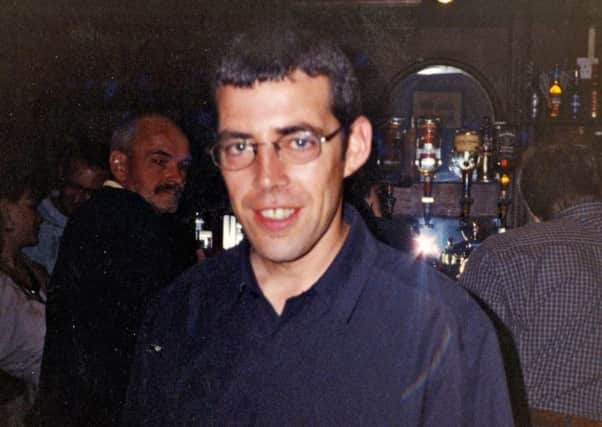Thomas Lamb killers fail to have sentence cut


James Watson, 28, his brother Paul, 30, and their friend Gary Sim, 22, were convicted of killing Thomas Lamb with the implement in July 2015.
The trio were jailed by judge Lord McEwan for a minimum of 20 years following a trial at the High Court in Edinburgh.
Advertisement
Hide AdAdvertisement
Hide AdA jury concluded that the three men had attacked Mr Lamb in a street in the Capital in September 2014.
Jurors heard how the three men had kicked and jumped on Mr Lamb’s head before repeatedly striking him on the body with the pitch fork and a knife.
The attack came after the crooks had gone to the Tor pub in Restalrig Road on September 20 that year.
They had gone there to celebrate James Watson’s release from a five-year sentence for armed robbery and assault.
Advertisement
Hide AdAdvertisement
Hide AdProsecutors and detectives failed to establish a motive for the crime. But eyewitness Sandra Swannie told the court that she heard one of the attackers say: “Will I finish him off?”
Last month lawyers acting for the three men argued before appeal judges that Lord McEwan had misdirected the jury.
The argued that the judge had misdirected jurors when he was giving them directions about the law surrounding murder.
Lord McEwan was speaking to the jurors about the concept of ‘concert’.
Advertisement
Hide AdAdvertisement
Hide AdThe concept means that people who help plan crimes or help others who commit it, are as guilty of the offence as the main offender who is arrested for the offence.
Defence advocates argued that Lord McEwan didn’t explain the concept to jurors properly.
However, Scotland’s most senior judge, the Lord Justice General, Lord Carloway, Lord Menzies and Lord Malcolm disagreed with the defence submissions.
The appeal judges ruled that Lord McEwan acted correctly.
In a written judgment issued by the Court of Criminal Appeal on Thursday, Lord Carloway wrote that he had no other option but to refuse the appeals.
Advertisement
Hide AdAdvertisement
Hide AdHe added: “The punishment parts selected were, as the trial judge himself described them, severe.
“However, there was good reasons for that having regard to the violence used. They cannot be described as excessive. The appeals against sentence are refused.”